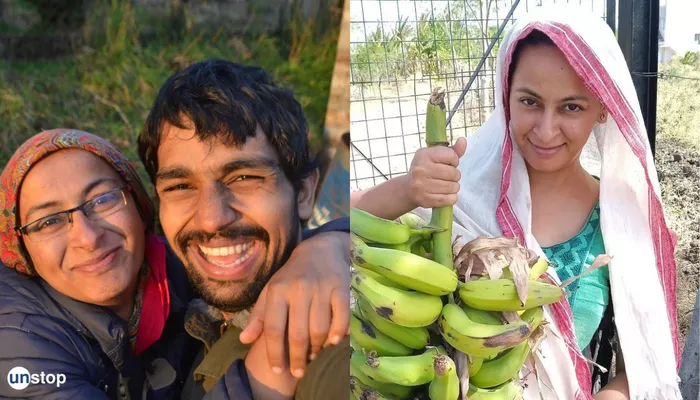When Sakshi Bhatia and Arpit Maheshwari left their high-paying jobs in the United States, they walked away not just from careers but from an entire way of life. Both alumni of the Indian Institutes of Technology, the couple chose to settle in rural Madhya Pradesh and build a life anchored in permaculture, self-sufficiency and simplicity.
Their farm, Jeevantika, now spans 1.5 acres and produces nearly 85 percent of what they eat. Oil is the only staple they still buy, a gap they plan to close once they acquire processing equipment.
A Break from Consumerism
The couple’s transformation began during a backpacking trip through South America. Immersed in the forests of the Amazon, they confronted what they describe as the emptiness of consumer excess. “The futility of chasing more started to weigh on us,” Mr. Maheshwari recalled. By 2017, they had returned to India with a plan: to live closer to nature and provide for themselves.
Building a Home by Hand
On their patch of land in Badnagar, they built a mud house over three painstaking months. The structure requires no air conditioning, remaining cool even during peak summer. They chose to live without a refrigerator, preferring to harvest food directly from their fields each day. Ms. Bhatia describes the labor as “harder than cracking the IIT entrance exam,” a process that reshaped not just their home but their outlook on life.
Farming as Philosophy
At Jeevantika, permaculture principles guide every decision: planting diverse crops, maintaining soil health and respecting natural cycles. Their social media presence has turned the farm into more than a homestead. It is now a statement — a model of sustainable living that draws visitors and curious learners from across the country.
More Than a Farm
For the couple, Jeevantika is not simply about food security. It is about rejecting a system they see as extractive and unsustainable. Their journey stands as a counter-narrative to the conventional IIT success story, redefining achievement not through wealth or corporate titles but through autonomy, resilience and ecological harmony.


